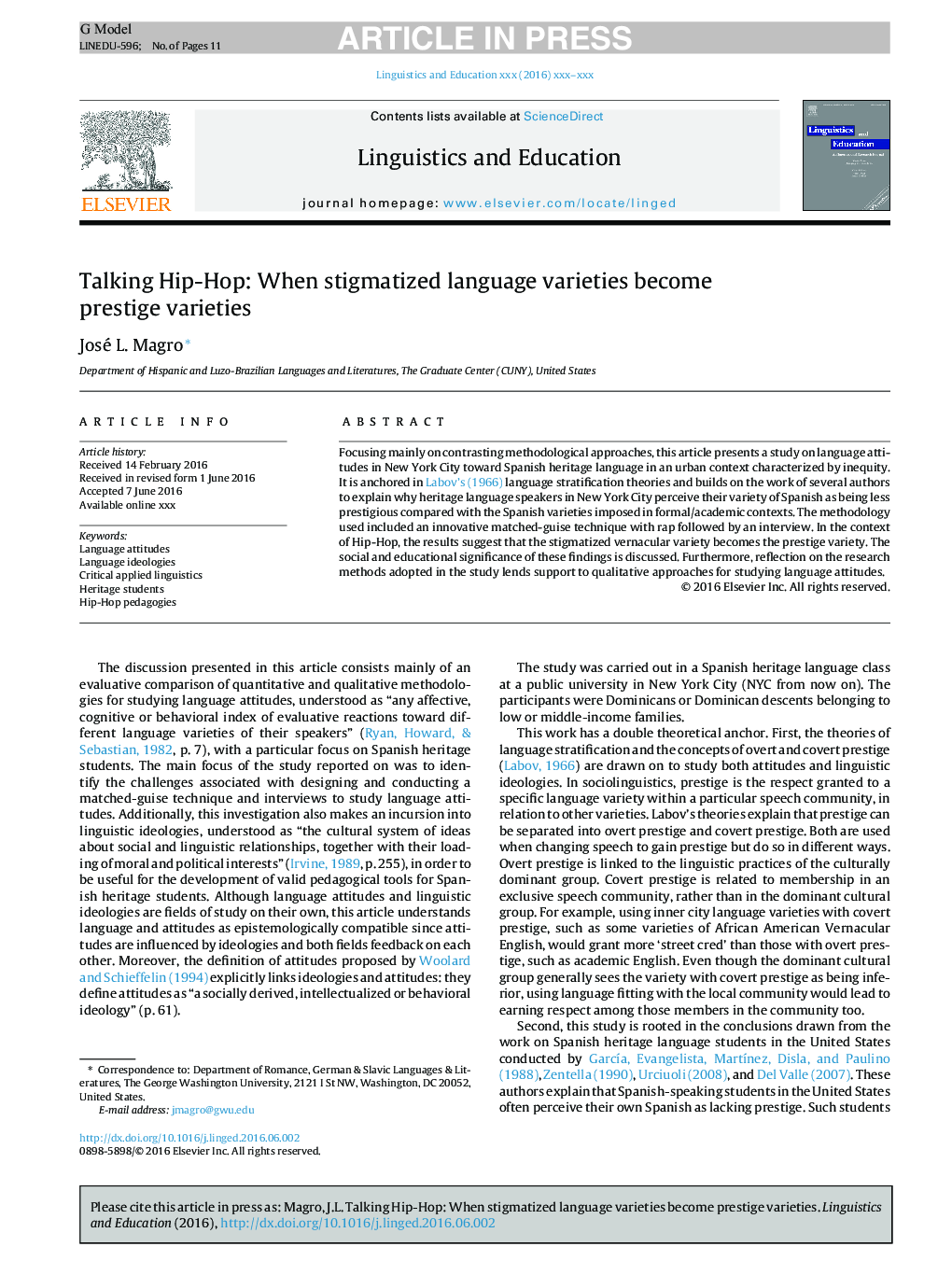| Article ID | Journal | Published Year | Pages | File Type |
|---|---|---|---|---|
| 4940331 | Linguistics and Education | 2016 | 11 Pages |
Abstract
Focusing mainly on contrasting methodological approaches, this article presents a study on language attitudes in New York City toward Spanish heritage language in an urban context characterized by inequity. It is anchored in Labov's (1966) language stratification theories and builds on the work of several authors to explain why heritage language speakers in New York City perceive their variety of Spanish as being less prestigious compared with the Spanish varieties imposed in formal/academic contexts. The methodology used included an innovative matched-guise technique with rap followed by an interview. In the context of Hip-Hop, the results suggest that the stigmatized vernacular variety becomes the prestige variety. The social and educational significance of these findings is discussed. Furthermore, reflection on the research methods adopted in the study lends support to qualitative approaches for studying language attitudes.
Related Topics
Social Sciences and Humanities
Arts and Humanities
Language and Linguistics
Authors
José L. Magro,
